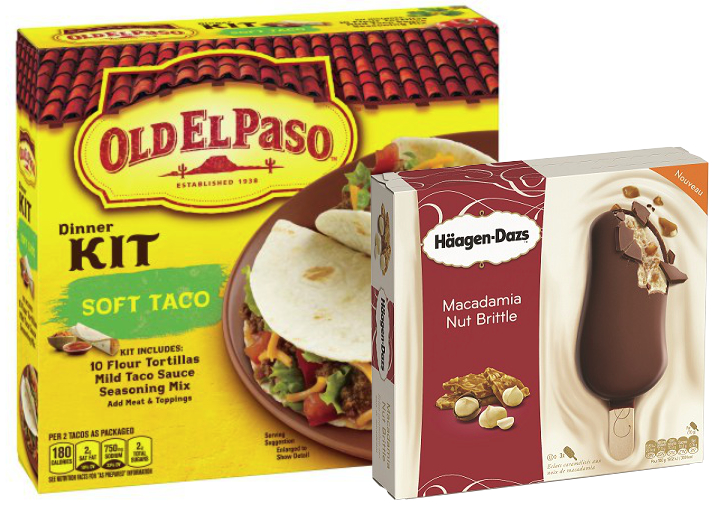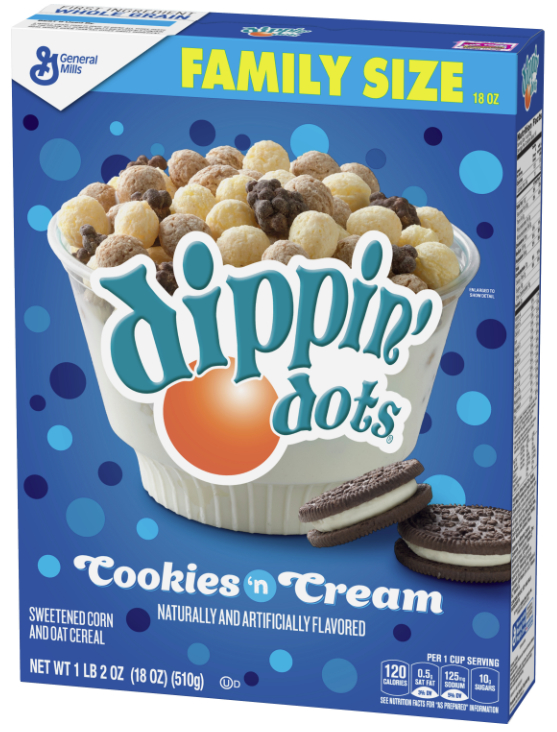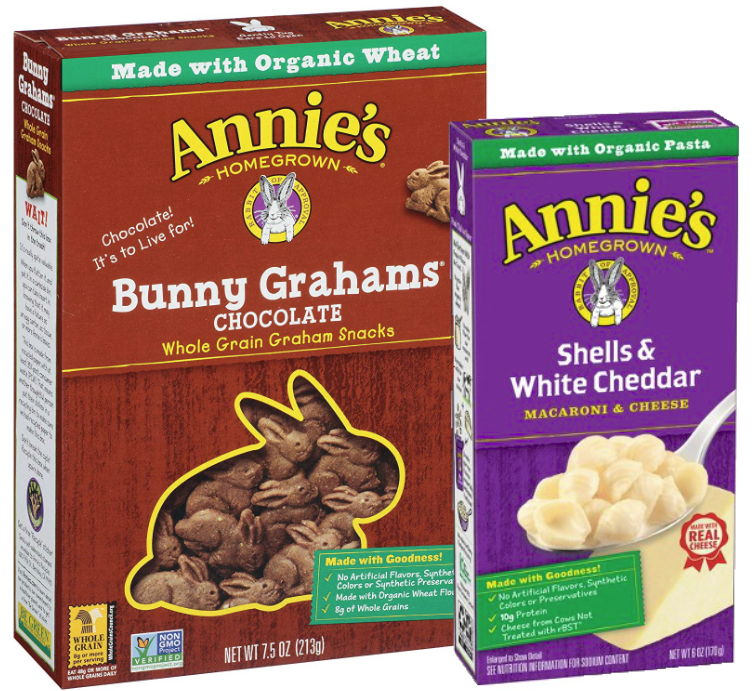MINNEAPOLIS — Adjusted earnings of General Mills, Inc. in the year ended May 28 were on par with results from a year earlier. In its initial forecasts for fiscal 2019, the company said earnings per share will be flat at best once again.
Jeffrey L. Harmening, chairman and chief executive officer, said the company ended a difficult fiscal 2018 on a strong note.
“While our full-year profit results fell short of our initial plans, we finished the year delivering growth in sales, margins, profit and e.p.s. in the fourth quarter,” he said. “And I’m pleased with the continued progress we’ve made in cash generation, with our free cash flow up nearly 30% this year.”
Net income of General Mills, Inc. in the year ended May 28 was $2,131 million, or $3.69 per share on the common stock, up 29% from $1,657.5 million, or $2.82 per share, in fiscal 2017. Sales were $15,740 million, up 0.8%. The sales change represented an improvement from the year before when General Mills sales fell 6% from fiscal 2016.
 The largest factor in the year-to-year earnings change was a 91% reduction in income tax charges to $57.3 million from $655.2 million, driven by the benefits related to the Tax Cuts and Jobs Act. Adjusted earnings per share in fiscal 2018 were $3.11, about unchanged from fiscal 2017.
The largest factor in the year-to-year earnings change was a 91% reduction in income tax charges to $57.3 million from $655.2 million, driven by the benefits related to the Tax Cuts and Jobs Act. Adjusted earnings per share in fiscal 2018 were $3.11, about unchanged from fiscal 2017.
For fiscal 2019, General Mills projected organic net sales to be flat to up 1% and sales including the company’s Blue Buffalo pet food acquisition to be up 9% to 10%. Operating profit was projected to climb 6% to 9% from a base of $2.7 billion in fiscal 2018, and adjusted earnings per share were projected to be unchanged to down 3% from $3.11 in fiscal 2018. The estimate includes a 4c per share accounting expense in fiscal 2019 associated with the Blue Buffalo acquisition.
“As we turn to fiscal 2019, we’ll continue to follow our Consumer First strategy and execute against our global growth priorities to further improve our top-line momentum,” Mr. Harmening said. “We are committed to competing effectively across all our brands and geographies, increasing investments to accelerate our differential growth platforms, and maximizing the growth opportunities for Blue Buffalo. We are also keenly focused on maintaining our efficiency in this more inflationary cost environment, and we have initiatives underway to help protect our profitability.”
Under its Consumer First strategy, General Mills is seeking to execute against three global growth priorities:
- "Competing effectively on all brands and across all geographies through strong innovation, effective consumer marketing, and excellent in-store execution."
- "Accelerating growth on its four differential growth platforms, including Häagen-Dazs ice cream, snack bars, Old El Paso Mexican food, and its portfolio of natural and organic food brands."
- “Reshaping its portfolio through growth-enhancing transactions, including the recent acquisition of Blue Buffalo Pet Products, Inc.”
Divestiture of businesses detracting from the company’s growth also will be pursued, General Mills said.
 In the fourth quarter ended May 28, General Mills net income was $354.4 million, equal to 59c per share, down 13% from $408.9 million, or 70c, in the fourth quarter last year. Sales were $3,890.2 million, up 2.2%.
In the fourth quarter ended May 28, General Mills net income was $354.4 million, equal to 59c per share, down 13% from $408.9 million, or 70c, in the fourth quarter last year. Sales were $3,890.2 million, up 2.2%.
Fourth-quarter results included $151.3 million in restructuring, impairment and other exit costs, up from $17.1 million the year before. Income tax expenses of $86.4 million were down 40% from $144.2 million. Adjusted earnings per share in the fourth quarter were 79c, up 8% from the year before.
In a call with investors June 27, Donal L. Mulligan, executive vice-president and chief financial officer, said the company took $97 million in impairment charges related to brands including Immaculate Baking, a maker of organic baking mixes and refrigerated dough acquired in 2012 by General Mills. Other brands affected included Mountain High yogurt and Yoki, a Brazilian brand that spans a wide range of food and beverage products.
Operating profit of the North American Retail segment of General Mills in fiscal 2018 was $2,217.4 million, down 3.7% from the year before. Net sales were $10,115.4 million, down 0.8%.
Fourth-quarter operating profit of the segment was $543 million, up 7%. Sales were $2,338 million, down 0.2%.
For the fiscal year, higher input costs and merchandising expenses were the principal drag on profits. Cost savings initiatives and lower sales, general and administrative costs were a boost in the fourth quarter.
 Cereal sales were flat for the year as were meals and baking. Snack food sales rose 2% in fiscal 2018 while yogurt sales fell 12%. In the fourth quarter cereal was up 2%, as were snacks. Yogurt was down 5%, and meals and baking fell 2%.
Cereal sales were flat for the year as were meals and baking. Snack food sales rose 2% in fiscal 2018 while yogurt sales fell 12%. In the fourth quarter cereal was up 2%, as were snacks. Yogurt was down 5%, and meals and baking fell 2%.
In the investor call, Mr. Harmening said cereal trends turned positive in fiscal 2018.
“We grew retail sales and market share in the U.S. behind strong marketing campaigns like Good Goes Round on Cheerios and unicorn marshmallow news on Lucky Charms,” he said. “We secured increased in-store displays at higher price points, resulting in improved merchandising performance, and we launched the biggest innovation in the U.S. category this year with Chocolate Peanut Butter Cheerios.”
In snack bars, Mr. Harmening detailed areas of growth and challenge.
“New Layered Bars and soft baked filled squares generated growth for Nature Valley in the U.S., and our businesses in Europe and Mexico leverage our U.S. product pipeline to accelerate Nature Valley sales,” he said.
By contrast, the Fiber One business has been a drag on results. Larabar sales enjoyed strong double digit growth.
“For our North American natural and organic portfolio, retail sales were up mid-single digits in 2018, which represents a slowdown from the prior year as we exited some tail s.k.u.s (stock keeping units) and channel-specific product lines,” Mr. Harmening said. “We continue to see stronger growth in our core products such as Annie’s Mac and Cheese and Bunny Grahams, Cascadian Farms cereal and epic snacks. Beyond measured channels, our natural and organic brands are driving our growth in e-commerce as early adopters for food online tend to over index toward natural and organic brands.”
Mr. Harmening said early results of the Blue Buffalo pet food business have been positive.
Operating profit of the Convenience Stores and Foodservice segment was $392.6 million, down 2.1% from the year before. Net sales were $1,930.2 million, up 3.2%.
Fourth-quarter operating profit was $117 million, up 11%. Sales were $510.6 million, up 4.7%. Indexed higher prices for bakery flour helped boost sales for the year and in the fourth quarter.
 For the year, segment profits were hurt by rising input costs, but results improved in the fourth quarter because of higher prices and improved mix, together with the effects of costs savings.
For the year, segment profits were hurt by rising input costs, but results improved in the fourth quarter because of higher prices and improved mix, together with the effects of costs savings.
After-tax earnings of General Mills’ joint ventures — Cereal Partners Worldwide and Häagen-Dazs Japan — were $85 million, about unchanged with the year before. Net sales for C.P.W. were flat during the year.
In the fourth quarter, earnings were $21 million, up from $20 million the year before. Earnings growth would have been greater but for a $2 million restructuring charge at C.P.W. Sales were down 2%.
Mr. Mulligan said snack foods and Pillsbury Stuffed Waffles performed well in convenience stores.
Mr. Harmening said General Mills grew its global e-commerce business 50% in fiscal 2018, including 70% in North America.
Commenting on innovation plans for fiscal 2019, Mr. Harmening said Cheerios Oat Crunch was launched in June and that the company plans new product news for a range of brands, including Totino’s hot snacks, Progresso soups, Betty Crocker desserts and Wanchai Ferry dumplings.




